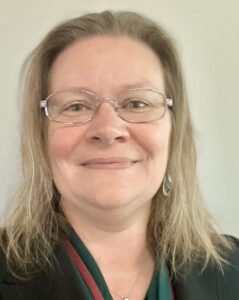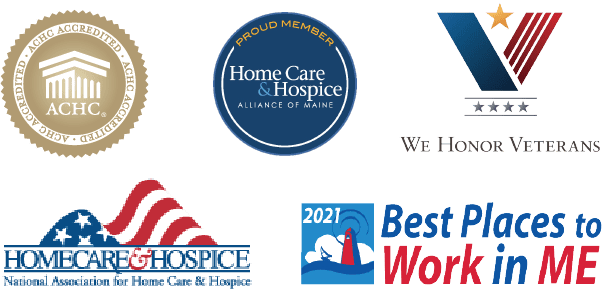Top misconceptions about hospice: Q&A with Hospice Director, Katherine Pushee, RN, MBA
While hospice may mean different things to different people, there are some common misperceptions about hospice that we hope to clarify here. To shed light on some of these misunderstandings, we’ve enlisted the help of Andwell Health Partners’ new Hospice Director, Katherine Pushee.
Q: What are some of the most common misconceptions about hospice?
A: One common misconception of hospice is that people may feel that choosing hospice care means “giving up.” In fact, in hospice, we take a holistic approach to chronic illness to improve quality of care for those within our community. Two common goals are: reducing unwanted visits to the emergency department or hospital, which may result in aggressive treatment that is not consistent with the patient’s goals and preferences; and alleviating the burden of care on families and other caregivers.
Another misconception is that a hospice is a physical space. While there are hospice facilities where patients may receive care, hospice is primarily a service and approach to care. You do not have to “go somewhere” to get hospice care. We come to you, with nursing, home health aides, social workers, chaplains, and volunteers collaborating to bring care and improve quality of life for the patient and their families.
Q: Why do you think these misconceptions about hospice persist?
A: I believe that these misconceptions about hospice persist due to lack of understanding around the hospice benefit in general. That fear of “giving up” in going on hospice clouds all else. Once people understand what hospice care really is, and the benefits that it can provide, then we are able to deliver care to more patients and their families who would benefit from it.
Q: How can hospice care providers and organizations better educate the public to dispel these misconceptions?
A: One of the most significant ways a provider or organization can better educate the public is partnering with an organization such as Andwell Health Partners to help have those conversations with patients and their families. Providers are often busy within their medical world and may not have time or resources to fully address all of the patient’s and caregivers’ needs. That is where an organization like Andwell can help, working in partnership with the providers to support difficult conversations and utilize our hospice team’s expertise to help support and educate the patients and their families within the community.
Q: What makes nonprofit hospice care, and Andwell in particular, different?
A: I have found that at Andwell Health Partners, we are committed to giving back to the community—right here in Maine. That is a significant difference from other providers. It is also important that we provide services for people needing hospice care, regardless of whether there is insurance to cover that care or not. One of the most impressive and innovative aspects that I learned about when I got here was that Andwell uses the proceeds from the Andwell Thrift Stores to support hospice services for community members who are uninsured. The mission of caring for Maine people and giving back to the community is part of our DNA.
Q: What kind of services do hospice care teams provide?
A: Hospice provides nursing care, home health aide care, spiritual support, social work support, and volunteer services for the patient and their family or caregivers. Hospice also provides bereavement support for those who are grieving after the patient’s death. It really is looking at each individual patient and their family and taking a comprehensive approach to best support them and meet them where they are. Hospice is covered under Medicare, MaineCare and most private insurance policies. (For those without health insurance coverage, please call Andwell and ask to speak with our billing staff who will work with you to explore options so we can make sure that financial issues are not a barrier to receiving high quality hospice care.)
Q: What is the one thing that you wish people knew about hospice care?
A: It is important that people know that hospice care takes a holistic approach that focuses on quality of life. Our goal is to meet people where they are and provide high-quality care for both patients and their families. Hospice care is not about “giving up”; it’s about living the best quality of life for the time you have left. At Andwell Health Partners, our mission is to support as many patients and families as possible during the most challenging times.
If you have any questions about hospice care, please don’t hesitate to contact us.


